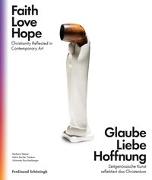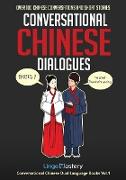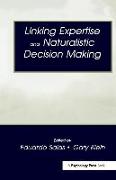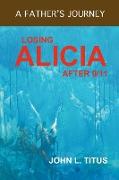Glaube Liebe Hoffnung
BücherAngebote / Angebote:
Die "drei göttlichen Tugenden" Glaube Liebe Hoffnung - Eckpfeiler christlicher Frömmigkeit - sind auch als künstlerisch dargestellte Allegorien und Symbole Teil des kulturellen Gedächtnisses. Heute zählen sie als Kreuz, Herz und Anker zu den beliebtesten Tattoo-Motiven und sind ein Beispiel für den Transfer und die Einverleibung christlicher Werte in unsere gegenwärtige Alltagskultur.
Mit Gesprächen, Textauszügen, Abbildungen und Werktexten von über 50 zeitgenössischen und auch alten Werken untersucht dieses Buch die christliche Prägung der westlichen Bildkultur. Es dokumentiert zugleich eine groß angelegte Ausstellung im Kunsthaus Graz und KULTUM Graz, die anlässlich des Jubiläums "800 Jahre Diözese Graz-Seckau" realisiert worden ist und sich aus der Perspektive des 21. Jahrhunderts mit diesem Erbe auseinandersetzt: Wie reflektiert zeitgenössische Kunst das Christentum? Welche Faktoren bestimmen das komplexe Spannungsfeld zwischen Anziehung und Abstoßung, innerhalb dessen sich Künstler/innen seit dem 20. Jahrhundert an der Kirche und dem Glauben abarbeiten? Und nicht zuletzt: Welche Formen des bildgebundenen ethischen wie auch gesellschaftlichen Diskurses sind bis heute prägend?
The "three divine virtues", Faith Love Hope-cornerstones of Christian piety-are also part of cultural memory as artistically rendered allegories and symbols. Today, depicted as the cross, heart and anchor, they are among the most popular tattoo motifs and are an example of the transfer and incorporation of Christian values into our contemporary, everyday culture.
Including conversations, text excerpts, illustrations and descriptive texts on more than 50 contemporary and antique works, this book examines the Christian influence on Western pictorial culture. At the same time, it documents a large-scale exhibition which was held at the Kunsthaus Graz and KULTUM Graz on the occasion of the anniversary "800 Years of the Diocese of Graz-Seckau" and examines this heritage from the perspective of the 21st century. How does contemporary art reflect Christianity? What factors create the complex field of tension between attraction and repulsion within which artists have been interpreting the Church and faith since the 20 th century? And last but not least: Which forms of image-based ethical and social discourse are still influential today?
Folgt in ca. 2-3 Arbeitstagen




